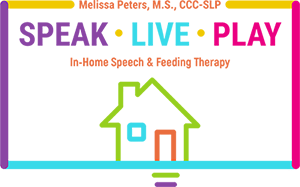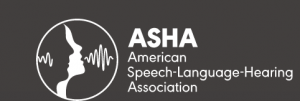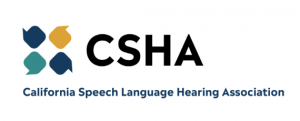Why is Speech Therapy Important for Children?
Speech therapy for children is crucial for several reasons:
- Early Intervention: The earlier a speech or language disorder is identified and treated, the more likely the child will be able to develop effective communication skills.
- Improved Academic Success: Strong communication skills are essential for academic performance. Children with speech or language delays may struggle with reading comprehension, written language, and classroom participation.
- Enhanced Social Skills: Children with speech and language difficulties often find it hard to interact with peers. Speech therapy helps them communicate better, fostering better friendships and social connections.
- Boosting Confidence: Speech disorders can lead to frustration and low self-esteem. Children’s speech therapy gives kids the tools they need to speak clearly, which builds their confidence in social situations.
Common Speech Disorders in Children
Several speech and language disorders are commonly treated through children’s speech therapy, including:
- Articulation Disorders: Involve difficulty forming sounds correctly, such as replacing, omitting, or distorting sounds. A common example is a lisp, where a child may have trouble pronouncing the /s/ sound.
- Expressive Language Disorder: Children with this disorder struggle to express themselves verbally. They may have trouble forming complete sentences or using correct grammar.
- Receptive Language Disorder: A child with this condition may have difficulty understanding language. They might struggle with following instructions or comprehending stories.
- Fluency Disorders: This includes stuttering, where a child has difficulty with the flow and rhythm of speech, often repeating sounds or getting stuck on words.
- Apraxia of Speech: A neurological disorder where a child has difficulty planning and coordinating the movements required for speech. This can make it hard for the child to form words even though they know what they want to say.
What to Expect During a Speech Therapy Session for Kids
When you bring your child for children’s speech therapy, the therapist will first assess the child’s speech and language abilities. The assessment may include:
- Reviewing medical history.
- Observing the child’s communication patterns.
- Conducting tests to identify specific speech or language issues.
After the evaluation, the therapist will develop a personalized treatment plan designed to meet the child’s unique needs. During therapy sessions, the child may participate in various fun and interactive exercises that target specific speech issues.
Parents and caregivers play an essential role in the process. The therapist will often provide at-home activities and exercises so the child can practice between sessions, helping reinforce what they’ve learned during therapy.
How Long Does Speech Therapy Take?
The duration of speech therapy for children depends on several factors, including the severity of the disorder, the child’s age, and the frequency of therapy sessions. While some children may make rapid progress, others may need longer-term support to achieve their communication goals. Consistency in attending therapy sessions and practicing at home is key to achieving the best results.
Speech Therapy for Kids: A Pathway to Better Communication
Speech therapy for kids involves various fun and interactive activities that help improve communication skills. It focuses on making speech clearer, improving the use of the mouth and tongue, and enhancing cognitive skills related to language. These skills are crucial for a child’s development, and speech therapy provides the support they need to master them. Through creative methods, speech therapists can assist children in overcoming challenges in speaking, making the process easier and more enjoyable for them.
Embarking on a Journey with Speak Live Play
At Speak Live Play, we specialize in providing expert speech therapy for kids who face difficulties in communication. Our compassionate team of speech therapists works closely with each child to assess their strengths and areas of improvement. We conduct thorough evaluations to identify what each child excels at and where they need help. From there, we design personalized therapy sessions that target their unique speech and language goals. Using evidence-based methods, we foster an environment where children feel supported and engaged, leading to significant growth and progress.
Our mission at Speak Live Play is to help every child unlock their potential in communication. We believe that each child deserves to have their voice heard, and we are committed to offering continuous support on their journey to becoming confident communicators. Trust our experienced team to guide your child toward improved speech, allowing them to thrive in both personal and academic settings.
Why Your Child Might Benefit from Speech Therapy
There are several reasons why a child might need speech therapy for kids. Some children have trouble pronouncing words or speaking fluently, while others may struggle with understanding language or forming sentences. In some cases, speech therapy becomes essential after an illness or injury that affects a child’s ability to communicate. If you notice your child having difficulties reaching important language milestones or keeping up with their peers, speech therapy could be the solution. A specialized speech therapist can help your child improve their speaking skills and overcome challenges, ensuring they don’t fall behind.
Exploring the Wonders of Speech Therapy for Kids
The benefits of speech therapy for kids are transformative:
- Improved Communication Skills: Children learn to effectively express their thoughts and emotions, boosting overall communication abilities.
- Clearer Speech: Speech therapy teaches children how to pronounce words correctly, ensuring that others can easily understand them.
- Preparedness for School: Children develop the necessary communication skills for academic success and social interactions with their peers.
- Enhanced Vocal Quality: Targeted exercises improve the quality and strength of children’s vocal abilities.
- Increased Confidence: As kids master new communication skills, their self-esteem grows, helping them gain independence in daily life.
The Multi-Faceted Approach of Speech Therapy
Speech therapy for kids is not just about speech. It takes a comprehensive approach to communication by addressing both verbal and non-verbal skills. Therapists work with children on various aspects, including body language, gestures, and facial expressions, to create a holistic communication strategy. This well-rounded approach ensures children receive support in every area of communication.
Speech therapy also involves teaching important social skills. Activities like video modeling and role-playing help children practice appropriate interactions in different social situations. Additionally, therapy can assist in improving reading and writing skills, which are closely tied to speech development. For children who struggle with verbal communication, therapists introduce alternative methods like sign language and gestures to help them connect with others.
Peeking into a Speech Therapy Session
A typical speech therapy for kids session may involve one-on-one or small group activities. These sessions are designed to be engaging and effective. Children participate in language activities, such as reading picture books, playing interactive games, and practicing words or sounds. Speech therapists focus on helping kids pronounce sounds and words correctly while guiding them on how to move their mouths and tongues for clearer speech.
Some therapy sessions also include oral feeding and swallowing exercises. These involve gentle massages of the face and jaw exercises to strengthen muscles. Therapists introduce foods with various textures and temperatures to help children become more aware of their swallowing process. This approach is particularly useful for children who have difficulty swallowing, providing them with essential skills for eating and drinking.
What is In-Home Speech Therapy and Why It’s Important for Children’s Speech Development
In-home speech therapy offers a personalized approach to helping children overcome speech and language challenges within the comfort of their environment. This type of therapy involves a speech-language pathologist visiting the child’s home to conduct sessions, making it more convenient and less stressful for both the child and their family. In-home therapy can be highly beneficial because it allows the therapist to work with the child in a familiar setting, which often fosters a sense of security and comfort, leading to more effective results. It also allows parents to be more actively involved in the process, learning strategies they can apply in daily life to support their child’s progress.
In-home speech therapy is especially important for kids, as early intervention is crucial for addressing speech and language delays. A child who receives speech therapy at home benefits from a highly individualized treatment plan that is tailored to their specific needs and developmental stage. This environment provides natural, real-world communication scenarios, which can enhance the child’s ability to generalize new skills into their everyday interactions. By addressing speech issues early in a supportive and familiar setting, children are better positioned for long-term success in communication, both academically and socially.
Why Choose Speakliveplay.com and Melissa Peters Yang?
Children’s speech therapy is an essential service that helps kids overcome speech and language disorders, enabling them to communicate effectively and confidently. Whether your child has trouble with articulation, language comprehension, or fluency, early intervention through speech therapy can make a significant difference in their development. By working with a skilled speech therapist, your child can improve their communication skills, leading to greater academic success, stronger social interactions, and higher self-esteem.
If you suspect that your child may need speech therapy, it’s never too early to seek help. Contact a speech therapist today to begin the journey toward clearer communication and a brighter future for your child.
Melissa Peters Yang, M.S., CCC-SLP, is experienced in treating the following disorders:
- Receptive and expressive language disorders
- Receptive and expressive language delay
- Early Intervention services
- Voice disorders
- Developmental disorders of speech and language (related to Autism Spectrum Disorder or any other disorders)
- Articulation disorders, including lisps (trouble producing /s/)
- difficulty producing /r/
- articulation disorders related to anatomical structure and function (cleft palate, genetic disorders, craniofacial disorders)
- Comprehension of written text (inferencing, reading comprehension)
- Grammar within spontaneous speech
- Apraxia of Speech
- Auditory processing disorder
Melissa uses evidence-based approaches as well as a child-centered environment to help your child with these speech and language disorders.
Melissa is PROMPT Level 1 Trained, which may be an asset to your child, depending on their deficit. She has experience doing DIR-Floortime and Oral Placement Therapy for articulation disorders.
Your child’s success in speech therapy is Melissa’s top priority. She re-evaluates treatment plans often and comes up with different, innovative approaches to help your child succeed in their speech and language development.



